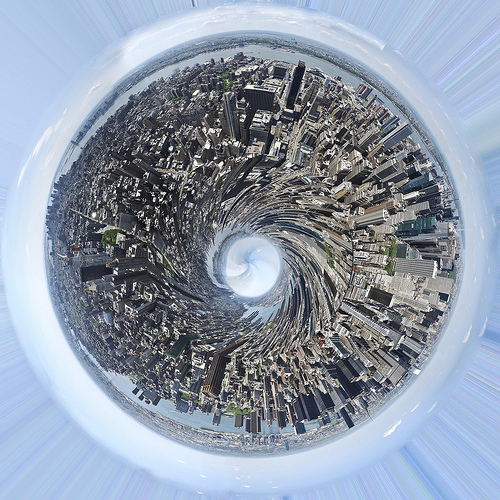FWP:
SETS == DEFINITION
DOOMSDAY: {10,11}
DREAMS: {3,3}
For background see S. R. Faruqi's choices. For more on Ghalib's unpublished verses, see the discussion in {4,8x}.
An urgent inshaa))iyah plea to the Lord not to show the speaker something 'even in a dream' alerts us chiefly to expect the 'something' to be really horrific, maybe almost unthinkable. What ghastly unbeholdable sight will the second line invite us to contemplate (and thus to mentally 'see')? Of course, under mushairah performance conditions we would be made to wait in suspense for as long as would be conveniently possible.
Then the second line offers us two candidates. One is 'the world' (2a), defined as a kind of Doomsday-gathering of (chaotic? frightening? ominous?) thoughts. The other is a terrible mental event (2b), some kind of Doomsday-gathering of madly swirling thoughts that is so awful that it's the kind of thing people might even call 'the world'. (This idiomatic use of yih to mean 'such a' is well-established and common; see the 'Grammar' page for examples.)
But the best part is that no matter how we read the second line, it concerns a phantasmagoric spectacle that can only be imagined, can only take place in the mind-- and thus can only be 'seen' in a vision or dream. (The fact that in Urdu one 'sees' a dream [;xvaab dekhnaa], rather than 'having' a dream, facilitates the imagery here.) If the speaker is asking the Lord not to show him even imaginatively, something that can only be seen imaginatively, he's really asking to be as far from that dreadful vision as possible, and not to 'see' it at all. Whether we take the dreadful vision to be 'the world' itself, or a conglomeration of the speaker's own thoughts (one so terrible it could be equated with 'the world'), the speaker's wild fear tells its own story.
For another ma;hshar-e ;xayaal , see {119,6}.

Asi:
The world has been considered nonexistent and has been construed as a single 'assembly of thought'. The prayer is that oh Lord, don't place this 'assembly of thought' before me even in a dream. To call the world an 'assembly of thought' is extremely subtle; and an 'assembly of thought in a dream', even subtler.
== Asi, pp. 270-271